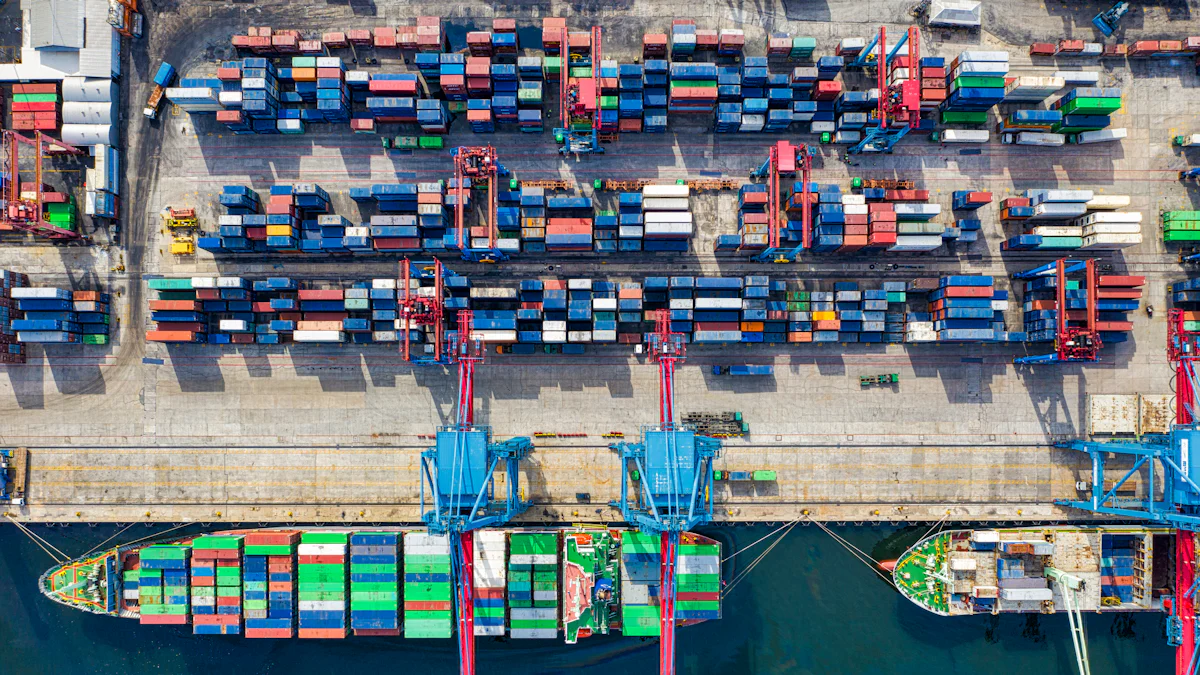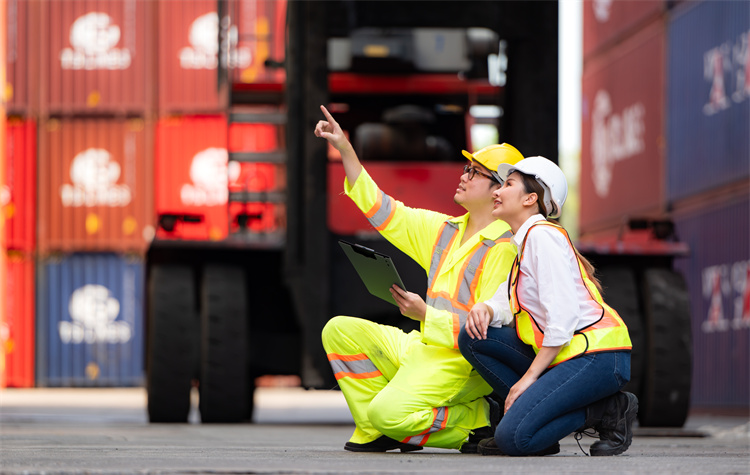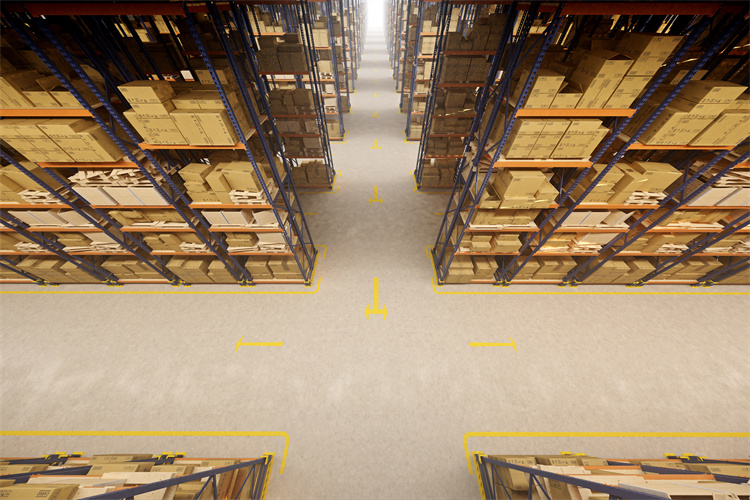Exploring Technological Advancements in Future Logistics

Technology plays a crucial role in logistics. The industry witnesses rapid technological advancements, reshaping operations and strategies. Many shippers have increased their technology investments since 2020. A significant 93 percent plan to continue this trend over the next three years. The future of logistics will see AI outperform humans in repetitive tasks by 2030. JUSDA leverages technology to enhance supply chain solutions. The company integrates big data and IoT for efficient management. JUSDA's innovative platforms streamline international trade and empower supply chains.
Key Technologies Transforming the Future of Logistics
Automation and Robotics in the Future of Logistics
Warehouse Automation
Warehouse automation enhances efficiency in logistics operations. Automated systems perform repetitive tasks with precision. Robotics streamline processes like sorting and packaging. This reduces human error and increases productivity. Automated guided vehicles (AGVs) transport goods within warehouses. These technologies optimize space utilization and improve safety.
Autonomous Vehicles
Autonomous vehicles revolutionize transportation in logistics. Self-driving trucks deliver goods without human intervention. This technology reduces delivery times and operational costs. Autonomous drones assist in last-mile delivery. These innovations enhance supply chain efficiency and reliability.
Internet of Things (IoT) in the Future of Logistics
Real-time Tracking
Real-time tracking offers visibility in logistics operations. IoT devices monitor shipments throughout the supply chain. Sensors provide data on location, temperature, and condition. This information helps prevent delays and damages. Companies use real-time data to make informed decisions. This improves customer satisfaction and trust.
Smart Inventory Management
Smart inventory management optimizes stock levels in warehouses. IoT sensors track inventory in real time. This technology prevents overstocking and stockouts. Data analytics predict demand patterns and adjust inventory accordingly. This reduces waste and enhances resource utilization.
Artificial Intelligence and Machine Learning
Predictive Analytics
Predictive analytics transform decision-making in logistics. AI algorithms analyze historical data to forecast trends. This helps companies anticipate demand fluctuations. Predictive models optimize routes and schedules. This reduces fuel consumption and delivery times.
Demand Forecasting
Demand forecasting enhances supply chain planning. Machine learning algorithms predict future demand accurately. This technology helps allocate resources efficiently. Companies use forecasts to adjust production and distribution strategies. This ensures timely deliveries and minimizes costs.
JUSDA's Impact on Supply Chain Management

JUSDA Solutions
To provide you with professional solutions and quotations.
Enhanced Efficiency and Productivity
Streamlined Operations
JUSDA optimizes supply chain operations through advanced digital management. The integration of big data and IoT technologies enhances operational efficiency. JUSDA's platforms facilitate seamless communication among stakeholders. This connectivity ensures precise coordination across the supply chain. Companies partnering with JUSDA report improved resource utilization. The streamlined operations lead to faster processing times.
Cost Reduction
JUSDA reduces logistics costs for businesses through innovative solutions. AI-driven systems enable predictive maintenance and efficient routing. These technologies minimize unnecessary expenditures in transportation. JUSDA's approach lowers inventory holding costs by optimizing stock levels. Companies experience significant savings in logistics expenses. The cost-effective strategies contribute to overall supply chain performance.
Improved Customer Experience
Faster Delivery Times
JUSDA enhances delivery speed through cutting-edge logistics technology. Autonomous vehicles and drones expedite the transportation process. Real-time tracking provides accurate updates on shipment status. Customers benefit from reduced waiting times for their orders. The swift delivery system boosts customer satisfaction and loyalty. JUSDA's commitment to speed sets a new standard in logistics.
Personalized Services
JUSDA offers personalized logistics services tailored to customer needs. Data analytics provide insights into consumer preferences and behaviors. This information allows for customized delivery options and schedules. JUSDA's platforms support flexible service offerings for diverse clients. Personalized services enhance the overall brand customer experience. Businesses gain a competitive edge by meeting unique customer demands.
Future Trends in Logistics Technology

Blockchain Technology
Secure Transactions
Blockchain technology transforms the logistics industry by enhancing transaction security. The decentralized nature of blockchain ensures data integrity. Each transaction receives a unique cryptographic signature. This signature prevents unauthorized access and tampering. Companies benefit from reduced fraud risks. Blockchain provides a reliable platform for secure data exchange.
Transparency in Supply Chains
Blockchain enhances transparency within supply chains. Every transaction records on a public ledger. This visibility allows stakeholders to track goods from origin to destination. Enhanced traceability improves accountability. Companies can detect counterfeit products more effectively. Blockchain fosters trust among supply chain partners.
Sustainable Logistics Solutions
Green Technologies
Green technologies play a crucial role in the future of logistics. These innovations focus on reducing environmental impact. Renewable energy sources power logistics operations. Solar panels and wind turbines provide sustainable energy. Companies implement eco-friendly packaging materials. Green technologies promote a circular economy by minimizing waste.
Energy-efficient Transportation
Energy-efficient transportation is vital for sustainable logistics. Companies invest in electric and hybrid vehicles. These vehicles reduce carbon emissions significantly. Advanced fuel-efficient engines optimize energy consumption. Logistics providers adopt smart routing systems. These systems minimize fuel usage by optimizing delivery routes. Energy-efficient transportation supports environmental sustainability.
Technology continues to transform logistics, enhancing efficiency and customer satisfaction. The future of logistics will rely on digital innovation and sustainability. Businesses must embrace these advancements to remain competitive. Challenges such as last-mile delivery and supply chain resilience require strategic approaches. Industry stakeholders should invest in technology and collaboration. This investment will ensure a more sustainable and interconnected global economy. Embracing technological change will allow businesses to do more with less, driving success in the logistics sector.
See Also
Innovative Solutions: Exploring the Future of Logistics Technology
Navigating Tomorrow: Digital Solutions for Future Logistics
Ready for Tomorrow: Discovering the Latest in Supply Chain Technology
Revolutionizing Logistics: The Impact of AI on Future Supply Chains
